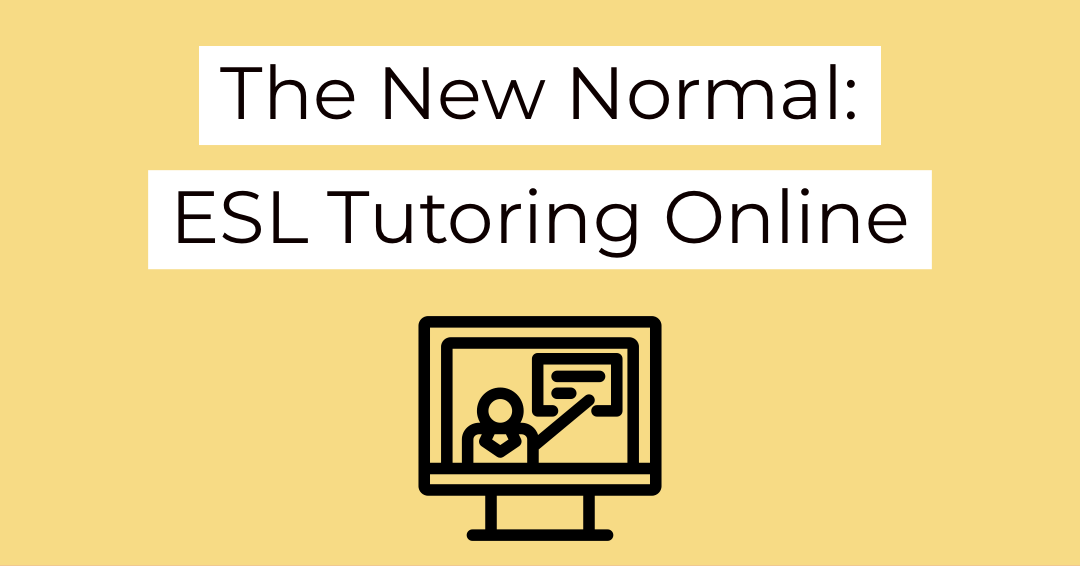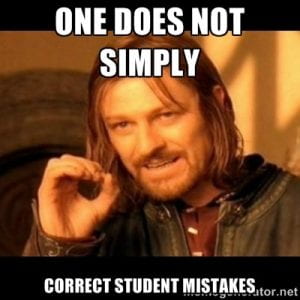
When we left for Spring Break, it seemed like business as usual and we expected to return to school a week later picking up where we left off. As the writing center coordinator at St. Cloud Technical Community College (SCTCC), I took a few days off to rest, relax, and recharge for the remainder of the semester. When I returned to work, Spring Break had been extended for two weeks and instructors were informed they would deliver courses online for the remainder of the semester. For those of us working at SCTCC’s tutoring center the Center for Academic Success (CAS), it meant finding ways to continue to offer our services to students, but from a distance.
With these changes came new guidelines for students coming to the CAS for help, and also my staff as well. Not only are my tutors dealing with the challenge of taking all of their classes online, but now must learn a new manner for tutoring. No more will they have the opportunity for physical contact with a student’s paper, or have the chance to sit across from the student having a conversation on assignment expectations.
Their interactions will be with computer screens through Zoom chats or responding to student drafts by typing comments. As a tutor who overall believes in minimalist tutoring, I fear that tutors may begin acting as editors rather than tutors. Instead of giving explanations for why a change should be made, they may make the change for the student returning a paper improved from a writing perspective. While the student may appreciate this, the encounter has hurt the tutor’s standing with the student and has stultified the student’s writing journey. While I am concerned with the possibility of this happening to any of the students, it raises particular concern for our ELL students. If they become reliant upon tutors making corrections to papers, these students will be placed in a precarious position moving forward both at SCTCC and at other academic institutions.
My Greatest Concern
A reason for my concern is finding the balance between instructor/student expectations and what it means to be a good tutor. Often ELL students come in with assignment sheets that read “for every grammatical or spelling error, one point will be deducted from this paper” or similar expectations. As a result, many students want to focus on sentence level issues like spelling or subject/verb agreement. An experienced tutor will notice these errors in the paper, but usually there will be bigger issues such as organization or lack of a coherent thesis statement (or the complete lack thereof). While these problems are not exclusive to ELL students, they occur with more frequency. Balancing the student’s desire for grammar and spelling help against higher order concerns like assignment expectations and learning about the process of writing is just one of the many challenges a tutor faces.
A Resource to Help
In an effort to prevent negative practices from occurring, I revisited by Ben Rafoth’s article titled “Responding Online.” The article is chapter ten in the book ESL Writers: A Guide for Writing Center Tutors 2nd Edition edited by Rafoth and his colleague Shanti Bruce. The entire book is a great resource and has been a constant companion throughout my tutoring and coordinating journey. If you work with ELL students on any subject, this book is fantastic resource filled with information on working with ELL students, and I highly recommend it.
In the tenth chapter, Rafoth discusses how he helped his writing tutors provide constructive feedback to ELL students who had emailed papers to the writing center. Rafoth gave many useful tips, but in particular offers four guidelines for his student tutors to follow when responding to online submissions.
- Less is more when it comes to writing comments
- Focus and consistency is paramount
- Direct but polite feedback is regarded as most helpful
- How tutors read a writer’s paper affects the responses
Each of these tips builds upon the previous one making it a practical progression for the ESL tutor to follow when responding to student drafts. While Rafoth is primarily concerned with his tutors responding to ELL students (as am I), his suggestions are ones that would be applicable for any tutor responding to online papers.
Less is more when it comes to writing comments
The first issue Rafoth delves into is giving too much feedback. Often in an effort to be thorough, student tutors comment on every problem in a paper. They do not necessarily ‘edit’ the paper, but they comment on every missed comma, additional space, and misspelled word along with higher order concerns as well. While thoroughness is admirable, it creates situations where the student is overwhelmed by the number of comments and suggested corrections. If a tutor has more comments than the student has text, the tutor has made too many comments.
Rafoth admits that the conscientious nature of the comments comes from the right place, but it lacks the direction that some ELL students require. If students see too many comments, they may think starting over would be easier. I have seen this tendency with some of my own student tutors and feel the need to fight this habit in myself occasionally.
Focus and consistency is paramount
The second element Rafoth emphasizes is the need for focused and consistent feedback. I have noticed that at times tutors will not have an overall goal with the comments they write. Sometimes it concerns punctuation and other times content. Rafoth mentions it is best to stay on one track when working with an ELL student. The tutor should focus on one issue and giving advice and pointers in regard to that issue. If the tutor starts to discuss other issues in addition to the primary one, it may cause confusion in the student who might believe that the spacing issues in the fourth and sixth paragraphs are linked to the issues with the thesis statement in the first paragraph. Thus maintaining a focus throughout the paper is not only useful for the student, but also for the tutor.
Direct but polite feedback is regarded as most helpful
Rafoth’s third suggestion is the one I struggle with the most. He mentions direct, yet polite feedback is the most useful and helps to build the confidence the student has in the tutor. Frequently, when offering feedback, I write a sentence like: “Perhaps you might want to consider thinking about it this way,” or “It might be beneficial for you to restate your thesis at some point in your conclusion.” When I reread my comments, I make them more positive and declarative statements as opposed to suggestive and wishy-washy comments.
Statements like the ones above are not useful as the student may think the tutor is unsure of their advice. Stronger statements like: “modify your thesis to discuss what the rest of your paper is about” or “you should restate your thesis in your conclusion.” This tendency to offer suggestive comments no doubt comes from a history of wanting the student to maintain ownership over his or her paper. If I come across too strongly with my comments, the paper may become more about what I envision for the paper as opposed to what the student wishes to write. This was useful to reread during this time of online tutoring and was something I passed on to all of my student tutors.
How tutors read a writer’s paper affects the responses
The final point Rafoth makes refers to how a tutor reads a paper and how the feedback will be affected. Tutors need to come into the tutoring session with realistic expectations of what the writer is capable of and where they are academically. Many tutors hope to get their students to the point of being able to produce a solid academic paper at the end of a tutoring session. This is not always possible. In fact, what it does is create unrealistic expectations for some ELL writers early in their academic careers. It is better to meet the student where they are in the writing process, and understand that there will be some errors you may not fix. There might be some issues that are not addressed until the next assignment, but the important thing is to have realistic expectations. An ELL student, taking their first college class, will most likely not produce the same quality paper as a NES (Native English Speaker). Thus, we should not read their papers with those expectations in mind.
Closing Thoughts
Rafoth’s book was a great help to me when I was learning the ins-and-outs of working with ELL students and it has helped me to learn different methods for working with these students. Revisiting his book at this time helped me provide insights to the student tutors I am working with and will help us to better serve the students that will be making use of our online tutoring services for the remainder of the semester.
Follow us on Twitter and Instagram to receive updates and our blog post, tips for learning and teaching English, and more adventures.


